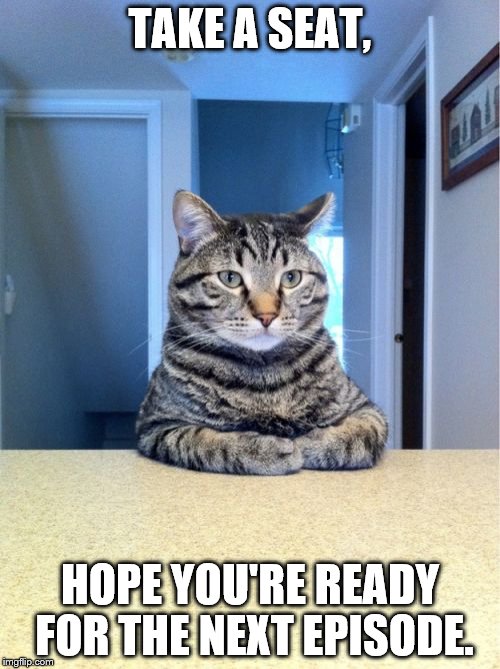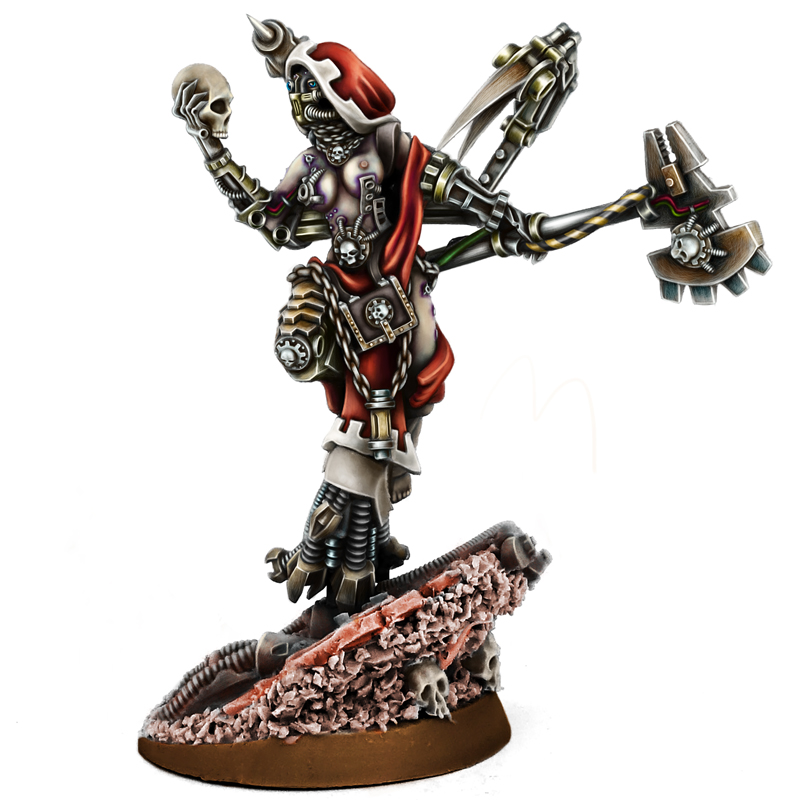I kinda tried to put off this post because...well, honestly I was scared.
It's a very, very delicate topic, and I have my ideas on it, but I don't want people to misjudge me.
Even because my ideas might not be exactly aligned to what can be called...politically correct, in a way?
Honestly I find it kind of ironic that I find it easier to speak in 'public' about graphic sex and kinky stuff than this. But I do think that, if me and you guys are to have a meaningful relation and if I want to go on and discuss what I want to discuss (#CharactersTell, I have a number of projects about it! You'll see, tomorrow we'll discuss some!) we have to tackle this topic and in a way...'rip the bandaid' on it.
Now, before we continue, I think considering the topic it's just fair that I put all the 'cards' on the table. While me personally have no reason to use 'labels', it seems they're needed. I'm a 32 years
old, bisexual, assigned male and...pretty ok with that, could be better, but eh, I guess white but Italian, so I'm not entirely sure where that fits me on the 'whiteness' scale, and definitely not a millionaire (by the way, my books are available for purchase, if you wanna help change that), and that's just for what I'm aware of without entering the realm of neurodiversity (never had a formal evaluation for that, so I won't assume anything).
Maybe some of you won't like what I have to say.
And that is perfectly fine.
Some of you might even dismiss whatever I'm going to say just on the basis of what I've just written, and honestly? While I don't agree with that kind of mentality, I won't be mad at you either. It's your prerogative.
 |
| Feel free to do this. I won't be mad. |
As you can imagine, this topic is gonna be more somber than usual, so don't expect a lot of funny jokes in it. If I find an opening, I might still do that, but I make no promises. Have a cat getting a massage as an apology.
 |
Why am I writing this?
So, I've been on the internet for quite a while now, and especially on Twitter. And sometimes I've seen..some weird little things floating around.
I've seen the demand for diversity and representation on a lot of media, I've seen the results of that, One time I've even seen arguments to basically say that people who are not of color shouldn't write characters of color.
I've seen what I sometimes perceived to be forced messages and forced agendas. On both sides of the spectrum, before you start throwing torches on my soapbox.And since one of the big things for me is character creation and development, I think we really need to have a talk about all this.
Diversity and Representation
Such really good, yet vague words.
Let me preface it with this: I love diverse characters. And I love that we're seeing more of them, and that they can give inspiration to people.
Let me preface it with this: I love diverse characters. And I love that we're seeing more of them, and that they can give inspiration to people.
We see a call for it in almost every aspect, but what does that exactly mean? Just having people of a certain ethnicity/gender/sexual orientation? Does that make them different as a person? Mind you, as with everything it plays a part in their personality - and it can be a big one, too - but should it be the defining aspect of it? The only thing we judge them for?
I guess this might need to be explained in a bit of a better way.
I used Tiogair already to make an example for something, so please allow me to bring Elemental, my published novel, as an example this time.
I pride myself in the fact that, in this book, I tried my best to make the main characters people you could find every day outside of your door. The ones who could be your neighbours. The people you meet at a coffee shop.
Natalia is one of them. She's a barista at a small coffee shop in Valladolid. She's the sort of woman who would always try to see the best in everyone, who would, if needed, force two people to speak to make good with each other. She's optimistic, believes in peace and love (unluckily for her), and is always trying to cheer people up.
She's also straight and a latina (being native Spanish.)
Damodar is another one of the main characters. He's the complete opposite. He's a selfish, self-entitled and centered, abrasive asshole, who surrounds himself in luxury in defiance to his family thanks to an hefty inheritance, to stubbornly revel in it. He's a promiscuous womanizer, and likes to come out on top no matter what - even if underneath it all there's some goodness in him. He just has troubles showing it.
He's also a person of color (Indian, lives in Bangalore).
Now, here's where I'm trying to go with this. How much does their skin color, their gender, and their country of origin mean to them on a 'grand' scale?
If I wrote Natalia as a white woman from Finland, would she be the same? In the same sort of family, growing environment, experiences and socio-economical series of events, probably yes. The differences would be minimal in what her personality is like, because it's her experiences as a person forming it more than certain aspects dominating it.
The same can be said of Damodar, if he was a white Italian he might have turned out the same, because the country and race have only so much bearing on what these characters are. They're not just a product of the country, or of their ethnicity, they're a product of all the other amazing or awful people that forged their experiences, from the parents to the random thug that might have mugged them ten years ago.
They themselves can be amazing or can be awful. And it's not a matter of their skin color, gender, sexuality, or whatever, it's because they're people.
While I can agree that having diverse characters is absolutely vital, and that their surroundings and experiences due to their gender, race, or any other aspect, shape them, I disagree with the idea that they should be considered 'different' just because they happen to like the same set of genitalia they have between their partner's legs.
Don't get me wrong - they are, of course, very important aspects of the character. But there are so many other factors that weigh into what forges them as people that I never understood why calling it diversity to begin with.
It might be a stupid example, but I can still read Batman, like Batman and empathize with Batman even if I don't have a multimillion dollar company to pay for my hi-tech gadgets, my parents are both still alive, and I don't have a buttler that was in the SAS.
Or, an even more fitting example, I can watch Luke Cage and still identify myself with him. Or Jessica Jones. Despite me not being a person of color or a woman.
Or, an even more fitting example, I can watch Luke Cage and still identify myself with him. Or Jessica Jones. Despite me not being a person of color or a woman.
I oppose to the idea that those aspects are so divisive they need to be the absolutely critical part of their character, because I find it a gross generalization. It's like saying that's the most important part of their personality - not being amazing or cruel, not being helpful or selfish, not being brave or a coward, but being that color, that gender and that sexuality.
I'm all for diverse characters and fair representation of them. I hope by now with just my work I managed to demonstrate it. But I'm for that and representation because I believe everyone can be everything. A person of color can be Batman or the Joker just as much as a white or an asian person. Not because of their skin, but because of who they are.
Neurodiversity - a side mention
A specific mention goes for Neurodiversity. While I tried to explain why the other aspects are important, but I have my views on them, neurodiversity does deserve it's own explanation.
I myself tend to avoid writing neurodiversity. Not because I don't wanna write it, or because I don't wanna represent it, mind you - but because I don't wanna make mistakes.
Of all the various sorts of diversities, I think neurodiversity is the one that is the more delicate to portray, because while everything else is a 'facet' (i.e., an homosexual person that has an upbringing of a certain kind, has more self confidence, etc, will face their situation in a different way than a more introverse, insecure one) neurodiversity is a lens. It's not an aspect, it's something that changes and 'warps' every experience that character might have.
Yes, I get that it's debatable that all the other aspects I've talked about do the same - but the main difference is not in a preference, or in an aspect, it's in how the mind processes and analyzes such facets and aspects.
On the other side - No, all this doesen't make you right
As much as I've seen the call for diversity, and I've seen the examples of diversity being implemented or demanded in a...clumsy way, to say the least, in some cases, I've seen just as much the backlash against this - which makes things even more awkward, because now it feels like when you're speaking about these topics you're taken in the middle of two armies ready to shoot or claim alliance with you for this or that word you said.
While some of the criticism in some of the cases is valid, and I do think both sides need to take a good look at themselves and recognize what is trolling and what is actual constructive and reasonable feedback, I've seen examples of people lamenting how much 'this minority is getting in my fandom' or even worse 'this wouldn't happen because of this and that due to biological differences'.
My only response to those on that extremist side of the argument (not to be mistaken with people actually trying to make the discussion constructive) is...grow up. We're talking about individuals - individuals that are in different situations that apply to them. You're thinking with statistics, and statistics aren't a person.
I can believe a woman can fight, kick ass and do all sorts of awesome things. The only reason I might not like certain things is not if the character portrayed is a male or a female, it's that even if that character was a man, I still wouldn't like them. And this ties back to the same big wall of text I've made earlier, it's not the gender that is 'wrong', is the character that is written sloppily.
Whatever gender they might be.
Conclusions
Huff. This has been a very difficult post to make. And I already thank you if you managed to get this far through my...somewhat confusing attempt at explaining my position on the issue.
I guess in conclusion what all this is trying to say is: Diversity is awesome, because it can give a very interesting view into some things we're not used to, and give role models, and more 'relatable' characters, but - and it's a pretty big but - we should keep in mind a character is a person first and a demographic later.
I keep being afraid that sometimes we end up feverishly rushing to have this 'kind' of character that we forget they need to have something more than just those details to define them. Or stand behind them and not point out their flaws in writing because of that.
Or we end up excusing poorly written characters because they're 'this' skin color or 'that' gender.
I can understand the need for representation - I mean, the only characters I'm familiar with that come to mind that just come from Italy in worldwide mainstream media are: a pair of stereotypically pizza loving plumbers, crime-bosses and just with Tekken 7 a maybe evil devil-gene sort of enhanced secret society exorcist - but let's not lose sight of what a full character is only because we crave to see someone like us.
Now feel free to blast me and shout how wrong I am about everything.
Or, preferably, let's discuss this and try to figure things out together, shall we?
See you tomorrow!













